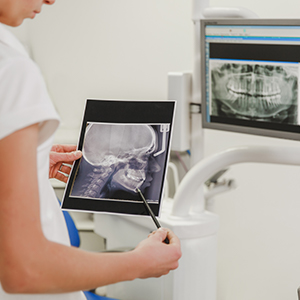
Did you know that more than five million teeth are knocked out each year? Knocked-out teeth are a common injury, but they aren’t the only type of injury that can develop from an accident. Facial trauma can result in broken teeth, broken jawbones, and cuts.
We know that facial injuries can be scary, but know that our team Northern Virginia Oral, Maxillofacial & Implant Surgery is experienced when it comes to treating traumatic facial injuries.
Below, we explain what facial trauma is and what you can expect when you receive dental care after an accident.
Types of facial trauma
Our team of oral and maxillofacial surgeons can treat a variety of facial injuries including knocked-out teeth (avulsed teeth), facial cuts and lacerations (including intraoral cuts), fractured facial bones, and fractured jawbones. Facial injuries can affect your bones, your soft tissues (such as your tongue or lips), and other facial structures including nerves.
The type of dental care you need after a traumatic facial injury depends on what type of injury you sustain and the severity of those injuries. For example, soft tissue injuries may require stitches while severe fractures may require surgery. Depending on which bones are broken, you might benefit from the placement of metal plates and screws (i.e., rigid fixation). However, if your jaw is severely broken, wiring your jaws together might be the best course of action.
Rest assured that no matter what type of facial trauma you sustain, our goal is to restore the functionality of your mouth while also focusing on the aesthetic aspects of any reconstruction. When possible, we utilize minimally invasive techniques, smaller incisions, and smaller surgical tools to reduce scarring.
After any type of facial trauma, it’s likely that your teeth sustain injuries. While enamel is strong, it’s not indestructible. Common dental injuries after an accident include chipped teeth, fractured teeth, and knocked-out teeth.
What to expect
After a traumatic facial injury, you can expect to seek medical attention immediately. Whether you need stitches, or you have a knocked out tooth, time is critical.
- Apply pressure to any bleeding
- Preserve knocked out teeth (in the socket, if possible, or tucked inside your cheek, or in a glass of milk)
- Try to receive dental care within 30 minutes of the accident if possible
Once you arrive at Northern Virginia Oral, Maxillofacial & Implant Surgery, you can expect a thorough and comprehensive exam to assess your injuries. In addition to an exam, you can expect diagnostic imaging (such as X-rays). These images help us determine the extent of your injuries and ultimately help shape your treatment plan.
We will explain all of your treatment options, which may include:
- Splinting or bonding for broken teeth
- Dental bonding for chips
- Extractions and root canals
- Sutures
- Rigid fixation
- Reconstructive surgery
If a tooth (or teeth) can’t be saved, we can guide you with your next steps to replacing those teeth. Dental implants can replace your missing teeth and restore the form and function of your mouth.
To learn more about dental care after facial trauma, request an appointment at one of our locations. Or, simply schedule an appointment online for our Burke, Reston, or Alexandria, Virginia office.
